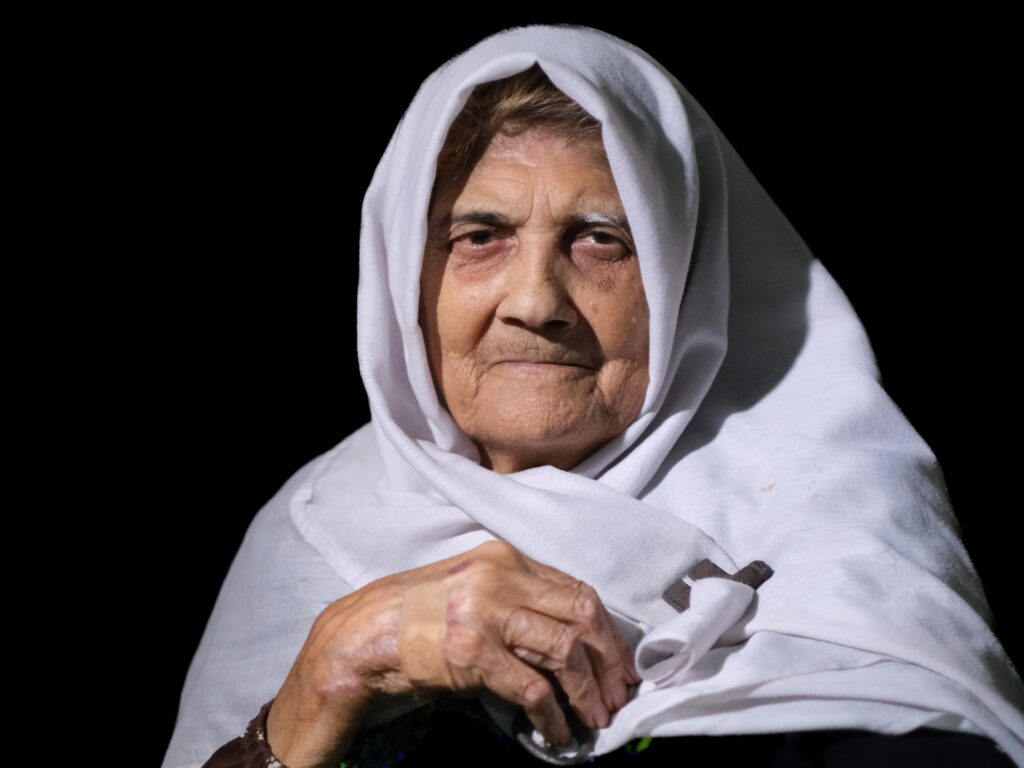Amman, Jordan – David Ben-Gurion, Israel’s first prime minister, believed that the memory of the Nakba, or “catastrophe,” would eventually fade for the hundreds of thousands of Palestinians violently expelled from their homeland by Zionist militias in 1948.
In 1949, a year after the creation of the State of Israel, he reportedly said: “The old will die and the young will forget.”
It’s a prediction that amuses Omer Ihsan Yaseen, a 20-year-old erudite optician and third-generation Palestinian refugee living in Amman, the Jordanian capital.
“We will come back, I’m sure,” he said firmly, pointing to a large iron key that once opened the heavy doors of his grandparents’ stone house in Salamah, five kilometers east of Jaffa. , which today is part of Tel. Aviv in Israel.
The key takes pride of place in a shrine-like craft display dedicated to Palestinian identity, hanging on the wall of his family optician, alongside a display of designer sunglasses and eyewear.
It contains a collection of memorabilia, including pieces of sand and earth smuggled from the Gaza Strip and Jaffa by family friends over the years.
Omer’s father, Ihsan Mohamad Yaseen, scoops up some Jaffa soil with a gentle reverence, letting it flow through his fingers into a small bowl.
The family home was burned down during the first Arab-Israeli War (May 1948 – January 1949), explains the 58-year-old, but the key remains an heirloom and is a symbol of resistance and the right of return.
Ihsan has lived his entire life in al-Wehdat, a chaotic and bustling Palestinian refugee camp in the suburb of Hay al-Awdah, southeast of Amman.
The camp was one of four established in Jordan after the Nakba to accommodate tens of thousands of Palestinian refugees, but it has long outgrown and now blends seamlessly into the surrounding areas of southeast Amman.
Like many Palestinians who have lived their entire lives in these camps, Ihsan still sees it as a temporary solution before his family can return to their homeland.

He takes long breaths as he recalls the memories passed down by his parents. Behind him, photos of Palestinian intellectuals line the walls, including poet and authors Mahmoud Darwish and Ghassan Kanafani.
Ihsan’s vivid descriptions paint a portrait of a family living in a close-knit community who spent their evenings in the traditional inner courtyard of their home, singing and dancing and surrounded by fruits, including the world-famous Jaffa oranges, which flourished in temperate regions. Mediterranean climate.
Happy memories turn to memories of violence after the Haganah, a Zionist paramilitary force, devastates the village.
He takes out a cane that belonged to his mother, engraved with the words of a song called Oummi (My Mother).
Aseel Yaseen, Ihsan’s amiable 28-year-old daughter, joins her father and brother as they clutch the cane and sing a long impromptu song.
Ihsan continues, but his words waver and his eyes reveal deep generational trauma.
Clutching the key tightly in his fist, he says local authorities told his parents they would be able to return in a week, once the violence was over, so they grabbed their key, packed a few bags and left for the city. Gaza Strip.
“I don’t know who sold our homeland. But I saw who paid the price”
A week turned into 19 years before the family was uprooted again when Israel seized the remaining Palestinian territory in the 1967 war, an event also known as “Naksa,” meaning setback or defeat.
Ihsan’s mother, six months pregnant, was forced to walk with him from Gaza to Amman, a grueling month-long trek that took her through the stifling heat of the Negev desert.

